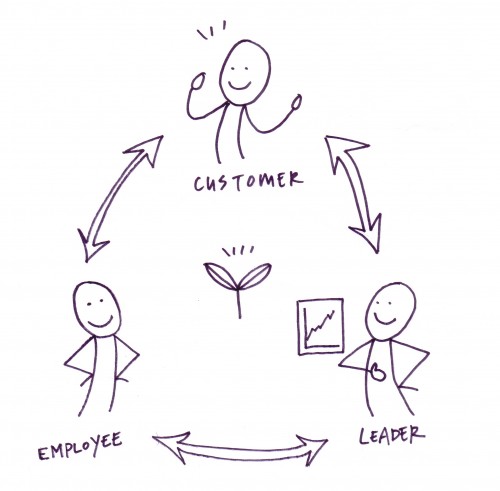Podcast: Play in new window | Download
Subscribe: iTunes | Android | RSS

Today’s podcast interview is a little different as it is an interview that I did earlier this year with the folks over at Engage For Success. My interviewer is Jo Moffat and over the course of our discussion we attempt to tackle the question: Is it time to stop talking about employee engagement?
This interview follows on from my recent interview – Technology has made people very productive but it has undermined their creativity – Interview with Chris Lewis – and is number 195 in the RARE Business series of interviews with authors and business leaders that are doing great things, providing valuable insights, helping businesses innovate and delivering great service and experience to their customers.
Here’s the highlights of my interview with Jo:
- This is #170 of Engage For Success’ own podcast series.
- The topic of the the conversation: Is it time to stop talking about employee engagement?
- There is a virtuous circle that exists that says that companies that take care of their employees are more likely to look after their customers and, in turn, those customers tend to reward those companies with their business. The relationship tends to work the other way round too.

- According to Gallup, both national and global levels of employee engagement have not significantly improved in the last 10-15 years.
- The global employee engagement industry is worth an estimated $89bn a year.
- So, given the size of monies involved and the lack of improvement in the engagement figures, do we not have to question the methods being used?
- Should we not focus on outcomes rather than just surveys?
- Employee engagement is in danger of becoming just another business add-on, a bit like CSR is for many firms.
- Is employee engagement a ‘bolt-on’ or is it part of who you are?
- Employee engagement suffers from many of the same problems that customer feedback mechanisms suffer from. If you don’t ‘close the loop’ then what’s the point?
- If you don’t close the loop then it shows that you are not serious about engagement.
- Companies that get it realise that employee engagement is a measure and not an end in of itself.
- Aviva is an interesting example as they focused on reorganising themselves to focus on doing only what is of value to the customer. As a result, their customer satisfaction and employee engagement results went through the roof.
- Another example comes from Principality Building Society who empower their employees to collect feedback at the point of service and then act on it.
- A great place to start when thinking about employee engagement would be to look at the employee experience and to ask the question: do employees have the right tools, training and support to be able to do great work and the best job that they can for the customer?
- According to Gallup, 70% of the variance between highly engaged workforces and those with low engagement can be explained through the quality of management.
- There is truth in the saying that ‘An employee joins a company, but leaves a manager’.
- Why are we not doing both customer journey mapping and employee journey mapping?
- If we want a world-class customer experience then does it not make sense that it should be underpinned by a world-class employee experience?
- Ask your employees: ‘How can we make your life easier?’ or ’Is anything that we do, however, small that annoys and/or irritates you?’
- Collecting these ideas and then fixing them (quickly) will go along way towards building trust with employees and boosting the levels of engagement.
- Do do quick pulse surveys but only use a few very short questions. Gather the data and act on what it is telling you and make sure you do it quickly.
Photo Credit: stevendepolo Flickr via Compfight cc



